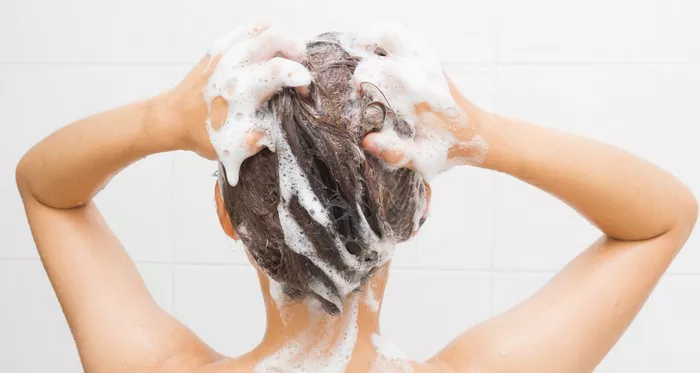Curly hair is a beautiful asset that requires specific care and attention to maintain its health and vibrancy. Unlike straight hair, which tends to distribute natural oils from the scalp more evenly, curly hair often struggles with moisture retention and can easily become dry and prone to breakage if not cared for properly. One of the most common questions among those with naturally curly hair is how often they should wash it. Finding the right balance between cleansing and preserving natural oils is essential for maintaining healthy curls. In this comprehensive guide, we will delve into the factors that influence how often you should wash your naturally curly hair and provide expert tips for achieving optimal hair health.
Understanding Curly Hair Texture and Porosity
Before determining how frequently you should wash your curly hair, it’s crucial to understand its unique characteristics. Curly hair comes in various textures, ranging from loose waves to tight coils, and each texture requires slightly different care. Additionally, the porosity of your hair—the ability to absorb and retain moisture—plays a significant role in determining your washing frequency.
Low porosity hair tends to repel moisture, making it prone to product buildup and requiring less frequent washing. On the other hand, high porosity hair absorbs moisture quickly but struggles to retain it, often necessitating more frequent washing to prevent dryness and frizz.
Factors Influencing Washing Frequency
Several factors influence how often you should wash your naturally curly hair, including your hair’s texture, porosity, lifestyle, and personal preferences. Here are some key considerations to keep in mind:
1. Hair Texture: As mentioned earlier, the texture of your curly hair plays a significant role in determining your washing frequency. Generally, individuals with tighter curls or coils may find that they can go longer between washes compared to those with looser curls or waves.
2. Porosity: Hair porosity affects how quickly your hair absorbs and loses moisture. If you have high porosity hair, you may need to wash more frequently to replenish moisture levels, while those with low porosity hair may find that less frequent washing is sufficient.
3. Lifestyle: Your lifestyle and daily activities can impact how often you need to wash your hair. For example, if you exercise frequently or engage in activities that cause your hair to sweat, you may need to wash more often to maintain cleanliness.
4. Climate: The climate in which you live can also influence your washing frequency. In humid environments, curly hair may become frizzy more quickly, necessitating more frequent washing to reset the curl pattern. Conversely, in dry climates, you may be able to go longer between washes to avoid stripping natural oils from your hair.
5. Styling Products: The type and amount of styling products you use can affect how often you need to wash your hair. Heavy or greasy products may require more frequent washing to prevent buildup, while lightweight products may allow you to extend the time between washes.
Determining Your Ideal Washing Frequency
While there is no one-size-fits-all answer to how often you should wash your naturally curly hair, there are some general guidelines you can follow to determine your ideal washing frequency:
1. Listen to Your Hair: Pay attention to how your hair looks and feels between washes. If it starts to feel dry, limp, or greasy, it may be time to shampoo.
2. Experiment with Different Intervals: Try washing your hair at different intervals, such as every other day, every three days, or once a week, to see what works best for your hair type and lifestyle.
3. Consider Co-Washing: Co-washing, or washing your hair with conditioner instead of shampoo, can help maintain moisture levels and reduce the need for frequent washing. This method is especially beneficial for individuals with dry or low porosity hair.
4. Use Dry Shampoo: On days when you don’t wash your hair, dry shampoo can help absorb excess oil and refresh your curls. Look for a dry shampoo specifically formulated for curly hair to avoid buildup and maintain bounce.
5. Invest in a Silk or Satin Pillowcase: Sleeping on a silk or satin pillowcase can help prevent frizz and extend the life of your hairstyles between washes. These materials are gentler on curly hair and reduce friction, resulting in smoother, more defined curls.
6. Protect Your Hair While Washing: When shampooing, focus on the scalp to remove dirt and buildup, and avoid over-manipulating or tangling your curls. Use a sulfate-free shampoo to avoid stripping natural oils from your hair, and follow up with a moisturizing conditioner to replenish hydration.
Conclusion
Finding the right balance between cleansing and preserving natural oils is essential for maintaining healthy, vibrant curls. By considering factors such as your hair texture, porosity, lifestyle, and personal preferences, you can determine the ideal washing frequency for your naturally curly hair. Remember to listen to your hair, experiment with different intervals, and use gentle, nourishing products to keep your curls looking their best. With proper care and attention, you can achieve beautiful, well-maintained curls that turn heads wherever you go.


